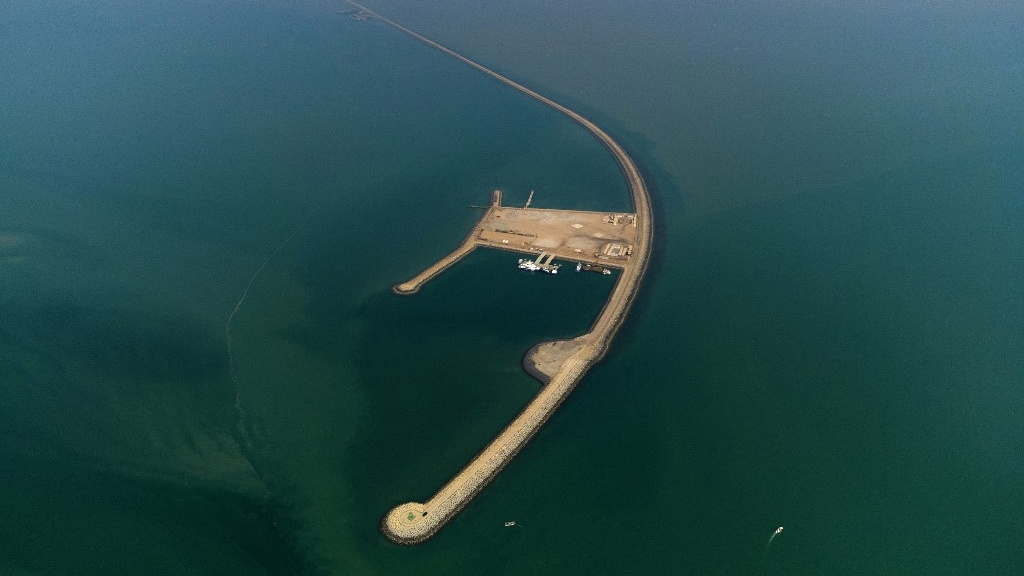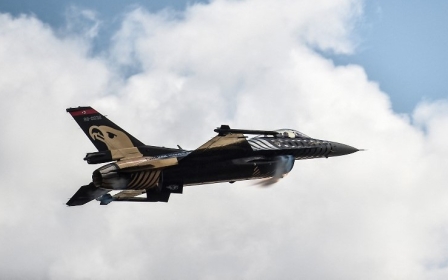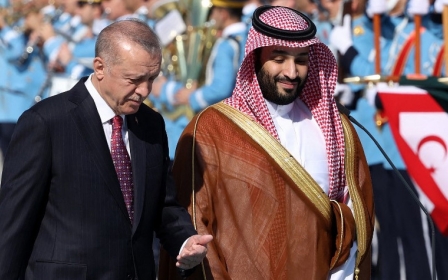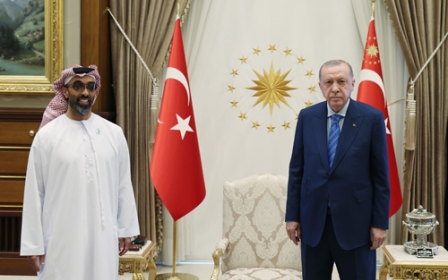Why Turkey-Iraq Development Road is the best way to connect Europe and the Middle East

During the recent G20 summit in New Delhi, without the participation of Russia and China, a key project was announced: the India-Middle East-Europe Economic Corridor (Imec), which aims to create an alternative to China’s Belt and Road Initiative (BRI). US President Joe Biden emphasised its “historic” significance.
The project is currently a political declaration of intent, with the support of both the EU and US. It will not materialise in the short term.
The Imec would connect Europe to India via the UAE, Saudi Arabia, Jordan and Israel, requiring a wide range of agreements. As an example, China is cooperating with around 140 countries for the BRI. But Turkish President Recep Tayyip Erdogan has opposed the Imec, saying the corridor “cannot be materialised without Turkey” and highlighting his country’s importance as a trade base.
Meanwhile, Turkey and Iraq have made progress in talks on another initiative: the Development Road project, a rail and highway link that would connect the Grand Faw Port in Basra to the southern Turkish border. Iraq’s prime minister has described this as the best option, and the least expensive one, for connecting the Middle East to Europe.
Erdogan has also stated that this project is a priority for Turkey, citing a plan to conclude negotiations within the next two months. The first phase of construction is expected to be completed by 2028.
New MEE newsletter: Jerusalem Dispatch
Sign up to get the latest insights and analysis on Israel-Palestine, alongside Turkey Unpacked and other MEE newsletters
Once built, the Grand Faw Port would be among the largest in the Middle East, with an area of 54 square kilometres and space to accommodate larger cargo ships. The breakwater at the port has been certified by Guinness World Records as the longest in the world, measuring approximately 14.5km.
The Development Road project can take advantage of the fact that there is already a railway line running south from Mosul, albeit a very old and troubled one in some parts. Renovation is already under way on some railway lines and stations in Iraq.
Governance obstacles
As Erdogan recently said, Qatar and the UAE support this project. The Gulf countries also have plans to lay a railway line among themselves. If the two initiatives are combined, transportation to Europe would become simpler.
The major challenges facing the Development Road project include political instability, complications with regard to state institutions, and security issues in Iraq. Although the security situation in Iraq has improved in recent years, the presence of militia groups continues to pose a threat, as evidenced by the recent clashes between Iran-backed fighters and Kurdish demonstrators in Kirkuk.
At the same time, the activities of the Kurdistan Workers’ Party (PKK) in northern Iraq continue to pose a threat. Turkey, which considers the PKK to be a terrorist organisation, has been carrying out air strikes against the group in Iraq.
While the Imec is still just a theoretical concept, the Development Road project is actively materialising
Further complicating matters is the ongoing governance and power-sharing crisis in Iraq. The presence of groups that serve as proxies of foreign powers, with various connections to the Iraqi government, creates obstacles. In addition, there has still been no full reconciliation between Erbil and Baghdad, with unresolved issues over the budget and sharing of oil revenues.
Ankara’s close relations with Erbil, however, could help to ensure that these issues do not affect the Development Road project. At the same time, Erdogan is trying to situate the project in a regional framework, rather than portraying it as simply a bilateral initiative between Turkey and Iraq.
The Development Road would not just connect the Middle East to Europe via Turkey; it would also connect Turkey to the Gulf states. Ankara’s vision in this regard aligns with the policy of multilateralism that the Gulf countries have recently developed. It comes as Turkey has been working to rebuild relations with the UAE and Saudi Arabia after a period of tensions.
At this point, while the Imec is still just a theoretical concept, the Development Road project is actively materialising. This gives it a good chance for success.
The views expressed in this article belong to the author and do not necessarily reflect the editorial policy of Middle East Eye.
Middle East Eye delivers independent and unrivalled coverage and analysis of the Middle East, North Africa and beyond. To learn more about republishing this content and the associated fees, please fill out this form. More about MEE can be found here.





